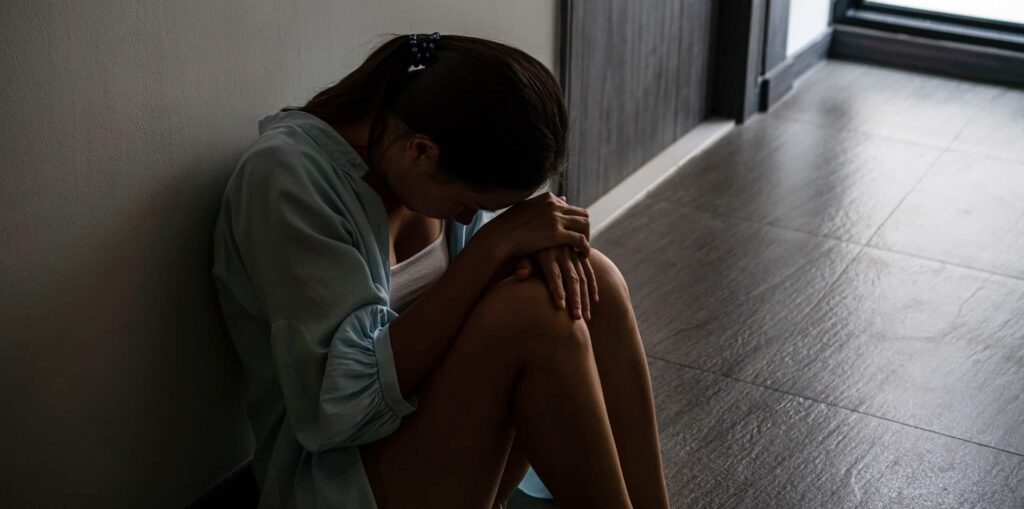Facing the facts of addiction, mental health and suicidality amount young adults
Amid the anxiety and alienation of the COVID-19 pandemic, the crisis of addiction, mental health and suicidality, especially among youth and young adults, has only gotten worse. Indeed, the statistics are sobering.
Before the pandemic, youth depression and anxiety we’re already rising, but have likely doubled globally since the pandemic.
In 2021, the percentage of college students in the United States taking psychotropic medications, including anti-depressants, anti-anxiety medications, stimulants, sleep aids, mood stabilizers, anti-psychotics and others, reached one in four.
Among those aged 15-24 in the U.S., suicide is the third-leading cause of death, with nearly 20% of high school students also reporting suicidal thoughts and 9% having made an attempt on their own lives.
Overdose deaths, overwhelming caused by fentanyl—whether taken knowingly or not—became the number one cause of death in the U.S. among 18–45 year-olds. Rising 15% over the previous year, in 2021 overdose deaths overall amounted tragically to a death every five minutes on average.
More generally, substance abuse data in recent years is also troubling. According to SAMHSA’s National Survey of Drug Use and Health, around 35% of young adults ages 18-25 binge drink, while the use of marijuana, amphetamines, cocaine, hallucinogens and MDMA is highest among people in their early 20s.
Study finds marijuana and hallucinogen use among young adults reached all-time high in 2021
The annual Monitoring the Future survey of substance use behaviors and attitudes among young adults highlights the growing mainstream acceptance of marijuana and psychedelics. The annual study was conducted by scientists at the University of Michigan’s Institute for Social Research and funded by the National Institute on Drug Abuse (NIDA), part of the National Institutes of Health (NIH).
Marijuana and hallucinogen use reported by young adults 19–30 years old increased significantly in 2021 compared to five and 10 years ago, reaching record highs in this age group since 1988. Additionally, high-intensity drinking (defined as consuming 10 or more drinks at a time in the past two weeks) steadily increased over the past decade, reaching its highest level ever recorded in 2021 (measurement began in 2005).
While smoking cigarettes continues to decrease among young adults, rates of nicotine vaping among the younger demographic gradually increased over the last four years, continuing their upward trend in 2021, after leveling off during the early days of the pandemic in 2020.
The study points to a number of reasons for the increase in substance use among young adults—the devastating mental health effects of the pandemic, the increased availability of legal cannabis, and the growing trend of using psychedelics to treat depression, PTSD and other mental health issues.
Recovery Centers of America offers a serious solution to a serious problem
As a parent to an adult or young adult child struggling with addiction and mental health, the physical, emotional and spiritual toll of it all can be devasting. Fear, anger, sadness, guilt, and resentment, among other challenging feelings, combine with uncertainty about how to proceed.
Above all, however, neither you nor your child is alone. Help for both addiction and mental health is available now.
At Recovery Centers of America, we partner with parents to find an empowering solution for you and your struggling children. Combining compassionate care with cutting-edge science and addiction treatments which have proven themselves over time, we provide comprehensive coverage across the continuum of care from medically monitored detox, to inpatient and outpatient at every level.
We also offer Discover, a dedicated inpatient treatment program for young adults. Sensitive at once to the addiction treatment needs, mental health disorders and developmental challenges of this age group, Discover employs evidence-based interventions, like cognitive behavioral therapy (CBT), motivational enhancement therapy (MET) and adventure therapy, to help them develop robust sense of self, grit and resilience.
Guided by research which shows greater rates of success in recovery for young adults whose family is involved in treatment, and attuned to the needs of families themselves, we offer a range of family programs, including therapy, webinars, educational and support groups. Notable among these options is Families RISE, a dedicated support group for the parents of young adults in addiction treatment. (For more information, consult our resources for parents.)
Confronting the mental health crisis, both as it occurs on its own and as it co-occurs with substance abuse, is also paramount to our multifaceted approach. Recognizing that very many people who struggle with a substance use disorder also deal with a mental health disorder, Balance, is a dual diagnosis program designed to treat them both together. Employing the proven method of dialectical-behavioral therapy, Balance helps manage thoughts, emotions and actions in the service of a flourishing life.
Encompassing every level of outpatient care (GOP, IOP and PHP), Recovery Centers of America’s outpatient mental health programs offer individual psychiatric evaluations, medication management, nurse support, individual and group therapy, remotely or in-person. Among the range of mental health treatment available to you and your children, anxiety, depression, bipolar, trauma, personality disorders, obsessive-compulsive disorder, anger management and more.
You and your child can find the lives you want to live. Call Recovery Centers of America for help now.




